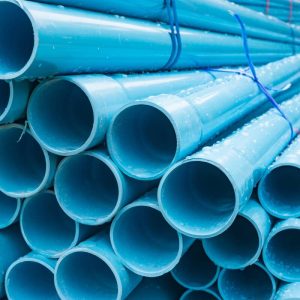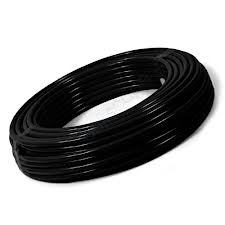Choosing the right tubing material is crucial for the success of various applications, ranging from medical devices to industrial systems. Each material offers unique benefits and drawbacks, influencing performance, longevity, and compliance with industry standards. Among these, thin wall silicone tubing is renowned for its flexibility, durability, and biocompatibility, making it a preferred choice in many sectors.
Understanding the differences between silicone tubing and other materials is essential for making informed decisions. In this post, we will compare thin wall silicone tubing with PVC, polyurethane, PTFE, and vinyl tubing to help you determine the best option for your needs.
![]()
BUY THIN WALL SILICONE TUBING HERE
Thin Wall Silicone Tubing Overview
Silicone tubing serves a variety of applications, from medical devices to food and beverage handling. Its flexibility and biocompatibility make it a superior choice for shrink tubing and replacing rubber parts in many scenarios. The thin wall design of silicone tubing allows for a lighter product, reducing shipping costs and making installation easier without compromising its strength or durability. Furthermore, its translucency lets users visually monitor the flow of contents.
Thanks to the unique physical properties of silicone, thin wall silicone tubing can withstand repeated compression cycles, a feature that extends its service life. This makes it an economical option for industries that require a consistent and reliable tubing solution. The material’s non-reactivity to a wide range of chemicals ensures the integrity of the tubing in various chemical environments, further broadening its use cases.
Moreover, thin wall silicone tubing is known for its ease of customization. The manufacturing process can be adjusted to create tubing in different sizes and tolerances, catering to specific requirements of different industries. This flexibility in design and production underscores its versatility and the reason for its widespread use in critical applications.
Key Features
- Resistant to extreme temperatures, both hot and cold
- Excellent flexibility and kink resistance
- Transparent for visual flow monitoring
- Low compression set, maintaining effective seal under pressure
- Biocompatible, suitable for healthcare applications
- Customizable dimensions to suit a range of applications
![]()
BUY THIN WALL SILICONE TUBING HERE
Comparing Thin Wall Silicone Tubing To Other Materials
When comparing thin wall silicone tubing to other materials, it’s vital to consider aspects such as dead volume and medical grade compliance. Silicone tubing generally offers lower dead volume due to its elasticity, which is crucial in medical applications where precision in fluid delivery is paramount. Additionally, silicone is widely recognized as a medical grade material, often meeting stringent regulatory requirements for cleanliness and biocompatibility. Let’s compare thin wall silicone tubing with other material tubings:
PVC Tubing
PVC tubing is a popular alternative to silicone, known for its high flexibility and good dimensional stability. It is composed of a plasticized material that offers a balance between strength and flexibility, making it suitable for a range of applications. PVC’s resistance to a variety of chemicals, along with its natural rubber-like properties, allows it to be used in diverse environments.
However, PVC tubing can be less heat-resistant than silicone, which limits its use in high-temperature applications. Additionally, concerns over environmental and health impacts of certain plasticizers used in PVC production can be a disadvantage, particularly in applications where purity and safety are paramount.

In contrast, thin wall silicone tubing offers superior performance in several critical areas. Silicone tubing boasts exceptional heat resistance, making it suitable for applications involving high temperatures where PVC would fail.
Pros:
- Highly flexible and dimensionally stable
- Resistant to a variety of chemicals
- Cost-effective
Cons:
- Less heat-resistant than silicone
- Environmental and health concerns over certain plasticizers
Common Applications:
- Construction
- Medical devices
- Fluid handling in laboratories
Polyurethane (PU) Tubing
Polyurethane (PU) tubing excels in durability with its impressive abrasion resistance and high tensile strength, making it ideal for rugged applications where mechanical wear is a concern. Its inherent elasticity enables PU tubing to retain flexibility without kinking, even under demanding conditions involving frequent bending or stretching.
Moreover, PU tubing’s ability to withstand higher pressures makes it a reliable choice for pneumatic systems and industrial automation where robust performance is essential.
However, when comparing PU tubing to thin wall silicone tubing, silicone emerges as the superior choice in certain critical aspects. Thin wall silicone tubing offers unmatched biocompatibility, making it ideal for medical and pharmaceutical applications where purity and safety are paramount. Additionally, silicone tubing exhibits exceptional resistance to extreme temperatures, maintaining its properties over a wide range of heat and cold.

Pros:
- Excellent abrasion resistance and tensile strength
- Maintains flexibility after bending or stretching
- Superior tear resistance and pressure handling
Cons:
- Not as temperature-resistant as silicone
- Limited use in certain chemical environments
Common Applications:
- Pneumatic systems
- Fuel lines
- Industrial automation
PTFE Tubing
PTFE tubing is highly regarded for its unparalleled chemical resistance and minimal friction coefficient, making it indispensable in industries requiring utmost purity and resistance to aggressive chemicals. Its non-reactive properties ensure that it can transport corrosive substances without degradation, maintaining product integrity and safety.
The smooth surface of PTFE prevents material buildup, ensuring a continuous and clean flow in critical processes. Moreover, PTFE’s ability to withstand extreme temperatures enhances its longevity and reliability, making it suitable for applications ranging from chemical processing to aerospace and electronics.
When compared to thin wall silicone tubing, PTFE has limitations in flexibility and biocompatibility. Silicone tubing, known for its exceptional elasticity, offers greater flexibility and durability, crucial for applications requiring repeated bending or movement without compromising performance.
Pros:
- Exceptional chemical resistance
- Low coefficient of friction
- Withstands extreme temperatures
Cons:
- More rigid than silicone, limiting flexibility
- More expensive
Common Applications:
- Chemical processing
- Aerospace
- Electronics industries
Vinyl Tubing
Vinyl tubing, crafted from polyvinyl chloride (PVC), is a versatile and economical choice for a wide range of applications. Its lightweight, easy handling, and ability to vary hardness levels cater to diverse industrial needs. The tubing’s transparency allows for clear monitoring of fluid flow, supporting quality control efforts, while its robust resistance to acids, alkalis, and many solvents enhances its reliability in chemical environments.
When compared to thin wall silicone tubing, vinyl tubing lacks in temperature resistance and durability. Thin wall silicone tubing excels in maintaining properties across extreme temperatures, offering superior flexibility and longevity even under repeated bending or stretching. Its biocompatibility and compliance with stringent safety standards make silicone tubing ideal for sensitive applications like medical devices and food processing.
Pros:
- Versatile and economical
- Lightweight and easy to handle
- Clear for visibility of flow
Cons:
- Not suitable for high-temperature applications
- May degrade with exposure to certain chemicals and elements
Common Applications:
- Beverage dispensing
- Laboratory tubing
- Low-pressure fluid transfer
By examining these materials, you can see how thin wall silicone tubing’s unique properties make it a standout choice for many specific applications, particularly where flexibility, temperature resistance, and biocompatibility are crucial.
BUY THIN WALL SILICONE TUBING HERE
Wrap-Up!
The choice between thin wall silicone tubing and other materials hinges on specific application needs and priorities. While PVC, polyurethane, PTFE, and vinyl tubing each offer unique strengths such as flexibility, chemical resistance, or cost-effectiveness, thin wall silicone tubing stands out for its unparalleled biocompatibility, heat resistance, and durability. These qualities make it a preferred option in industries demanding stringent safety standards, including medical devices, pharmaceuticals, and food processing.
By understanding the distinct advantages of thin wall silicone tubing over its counterparts, decision-makers can confidently select the optimal tubing material to enhance performance, reliability, and safety across various applications.


